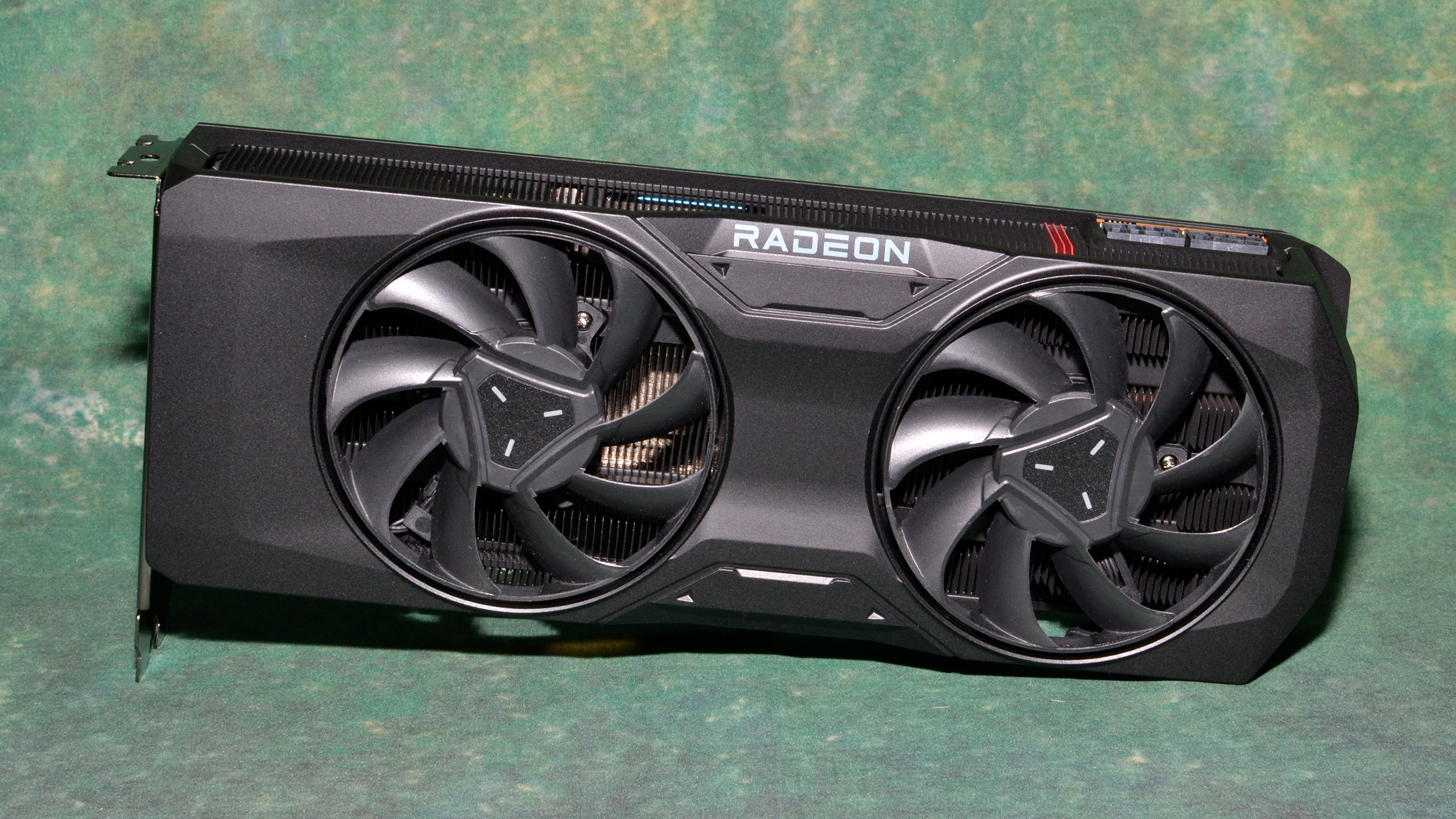Why you can trust Tom's Hardware
In our RTX 4060 Ti 16GB review, we added three additional (relatively) recent game releases to our testing, to see if they showed any additional benefit from the added memory. We're keeping those same games for the 7800/7700 XT reviews, and adding one more: Starfield — not because it's a balanced and well-optimized game, but it does go into full release today, and we have some numbers from other GPUs, which you can see in our Starfield GPU performance guide, so we figured why not?
The other three games consist of F1 2023, Hogwarts Legacy, and The Last of Us: Part 1. None of these are brand-spanking new, and after the initial launch woes, most of them have received some much-needed TLC. But Hogwarts and The Last of Us still have a reputation for wanting more than 8GB of VRAM at maxed-out settings, and Starfield will give us a look at a brand-new game on current and previous generation AMD GPUs as well as Nvidia GPUs — caveats apply to Nvidia performance right now.
We'll do a gallery of the benchmarks from each game, so swipe through the images to see the results at the various settings/resolutions.
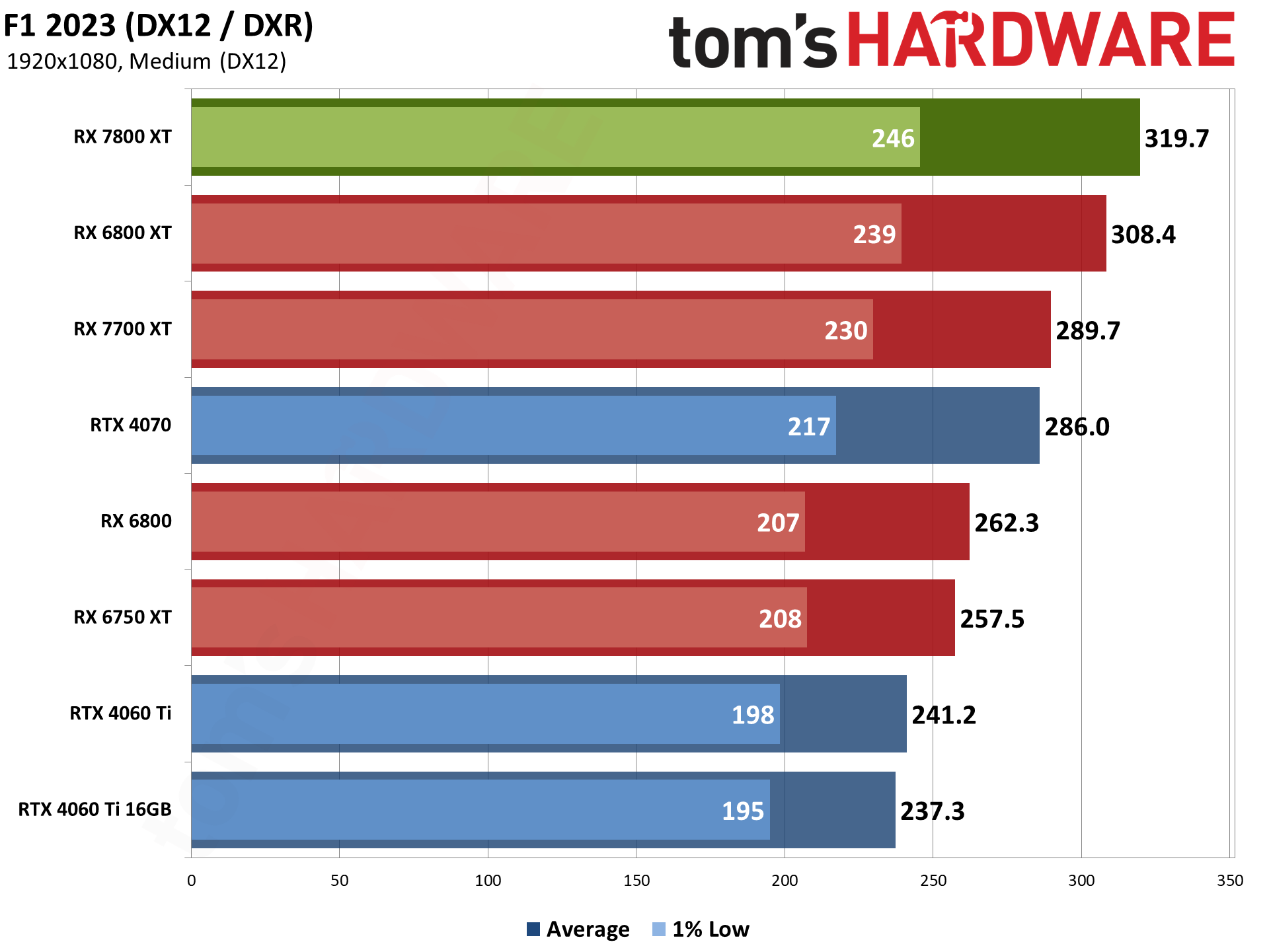
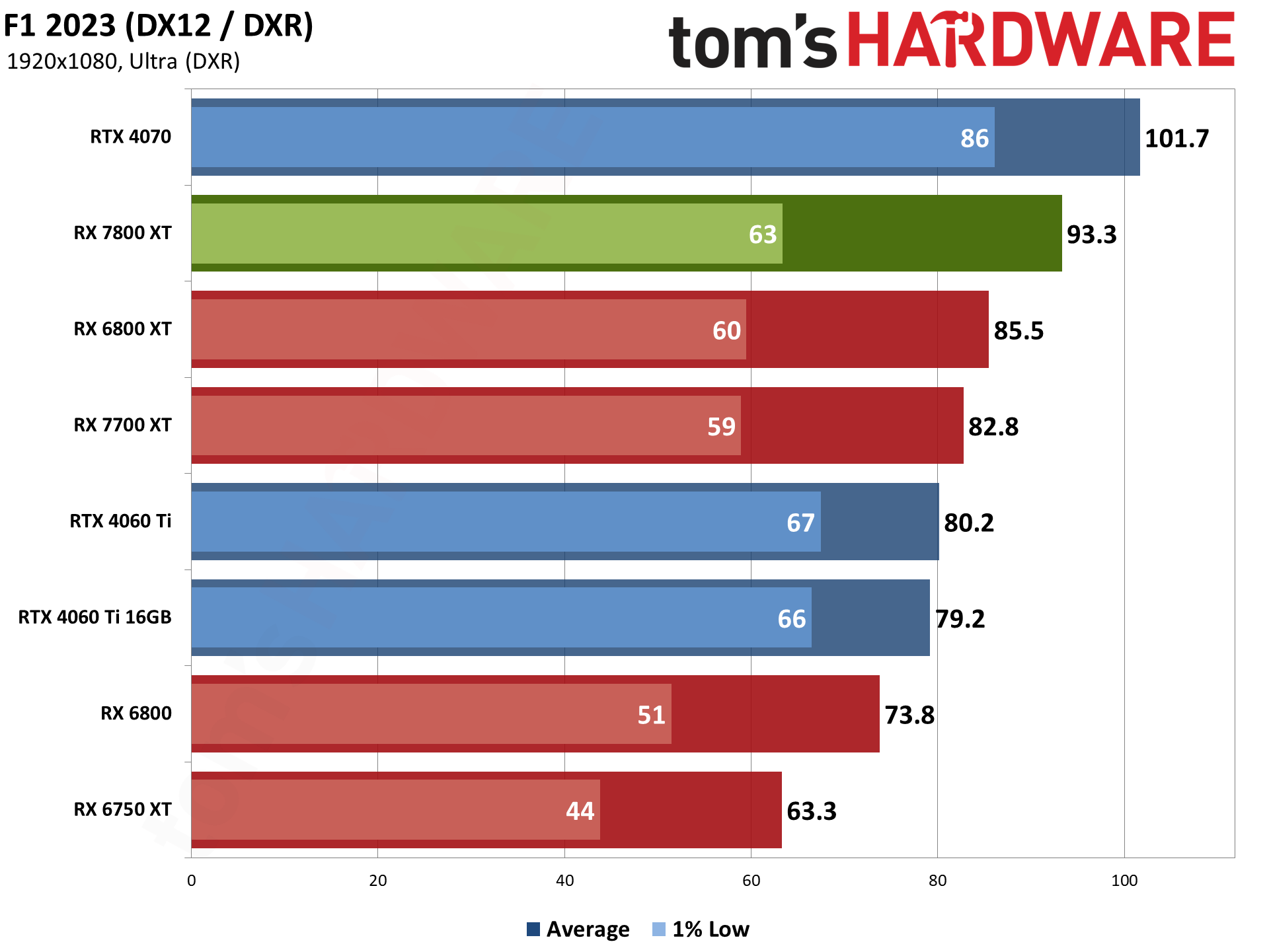
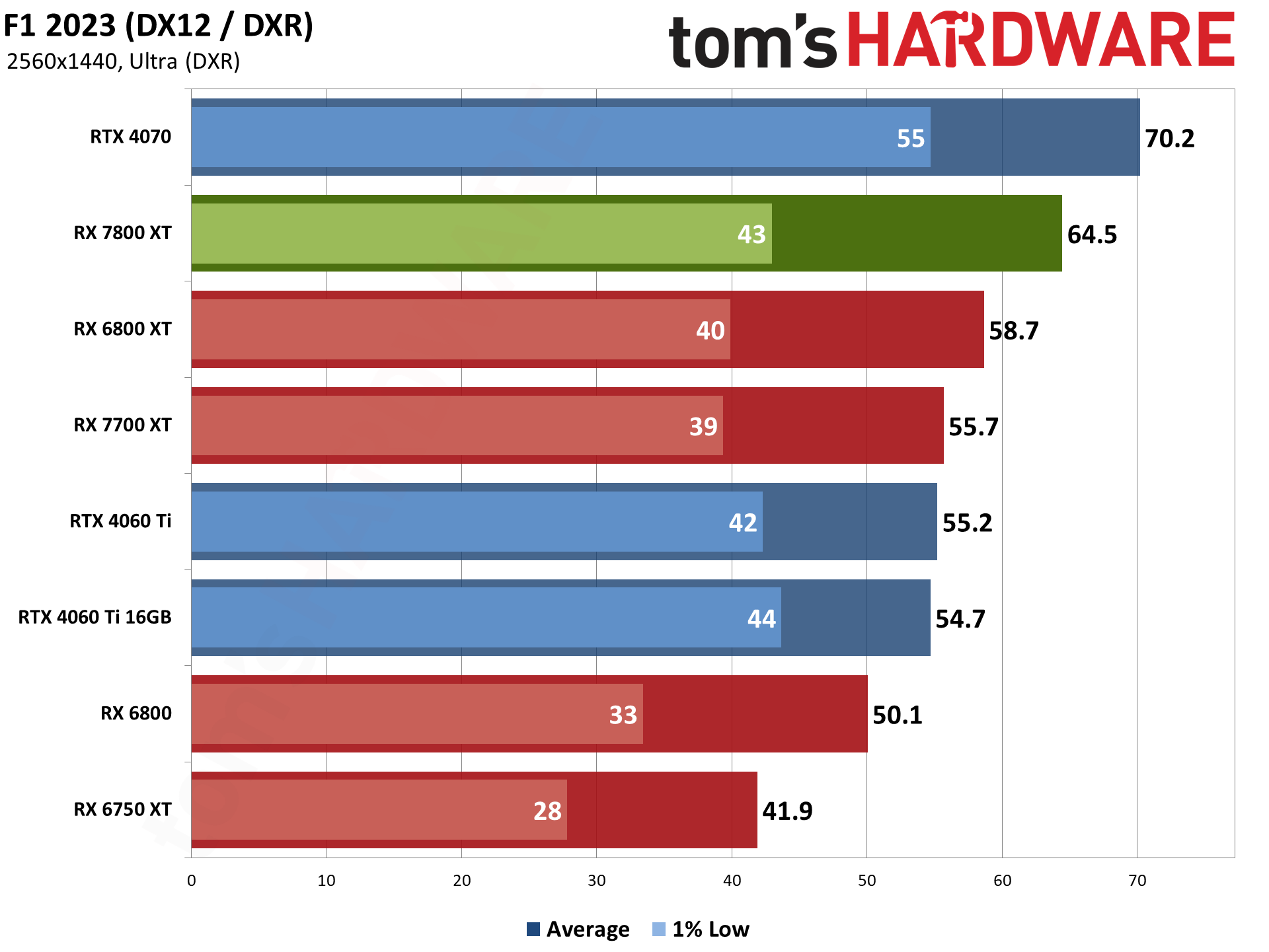
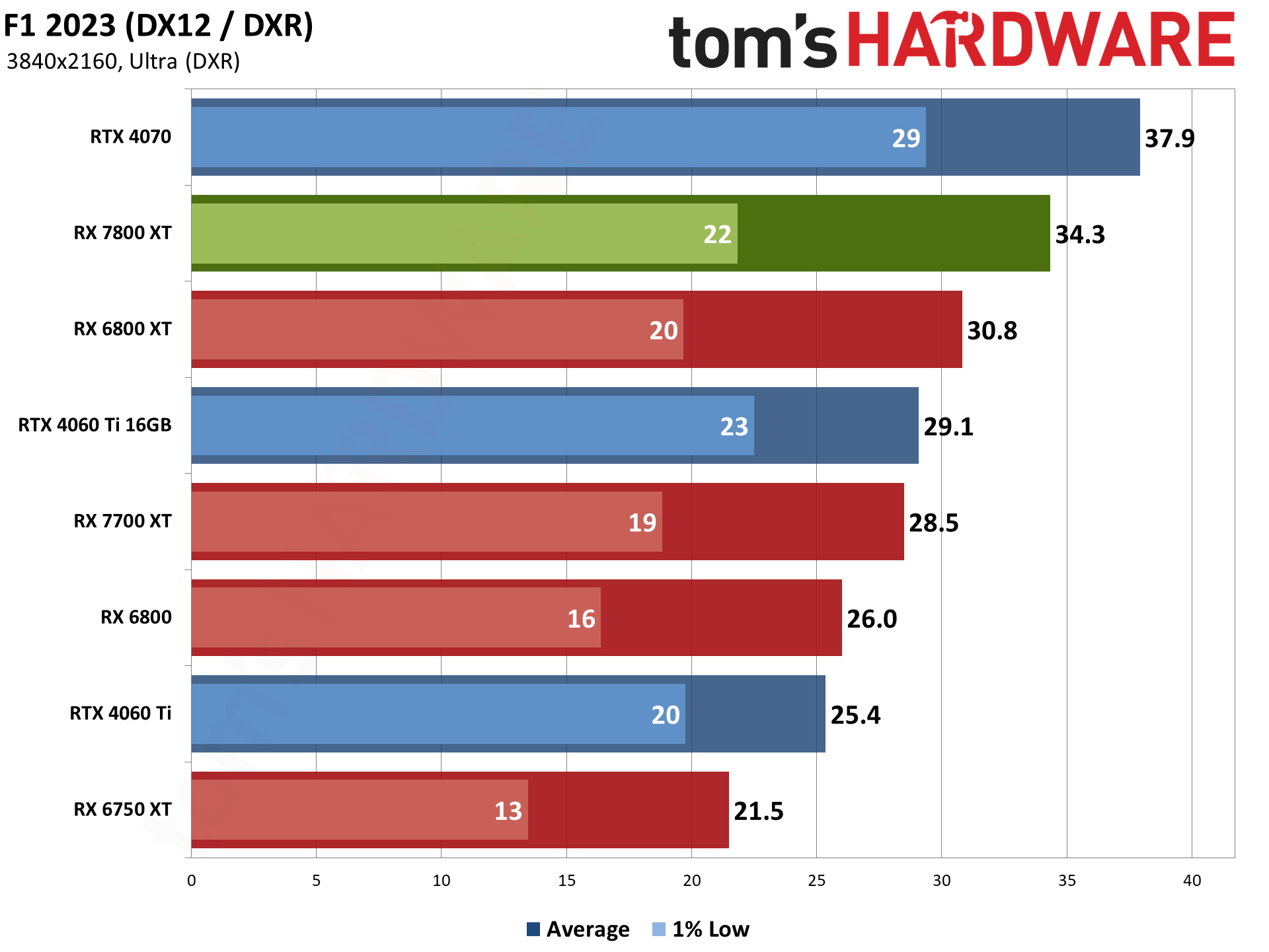
F1 2023 mostly echoes what we saw in our primary gaming tests. For reference, we tested on the Australia track, in the rain, for one loop of the track (130 seconds).
At 1080p medium, which doesn't have ray tracing effects, the RX 7800 XT ends up 33% faster than the RTX 4060 Ti. At 1080p and 1440p ultra, which does include some ray tracing effects, the gap shrinks to 16–17 percent. But then at 4K ultra, the gap is back up to 35% — the 4060 Ti 8GB card runs out of VRAM capacity. The 16GB variant meanwhile continues to deliver the same relative performance (15% slower) as the 7800 XT.
It's a similar story for the RTX 4070. It's 10% slower than the RX 7800 XT at 1080p medium, but about 10% faster at ultra settings where its superior ray tracing performance comes into play. F1 2023 favors the new 7800 XT over the 6800 XT, however, with the new GPU delivering 4% better performance at 1080p medium settings, and 9–11 percent higher performance at ultra settings.
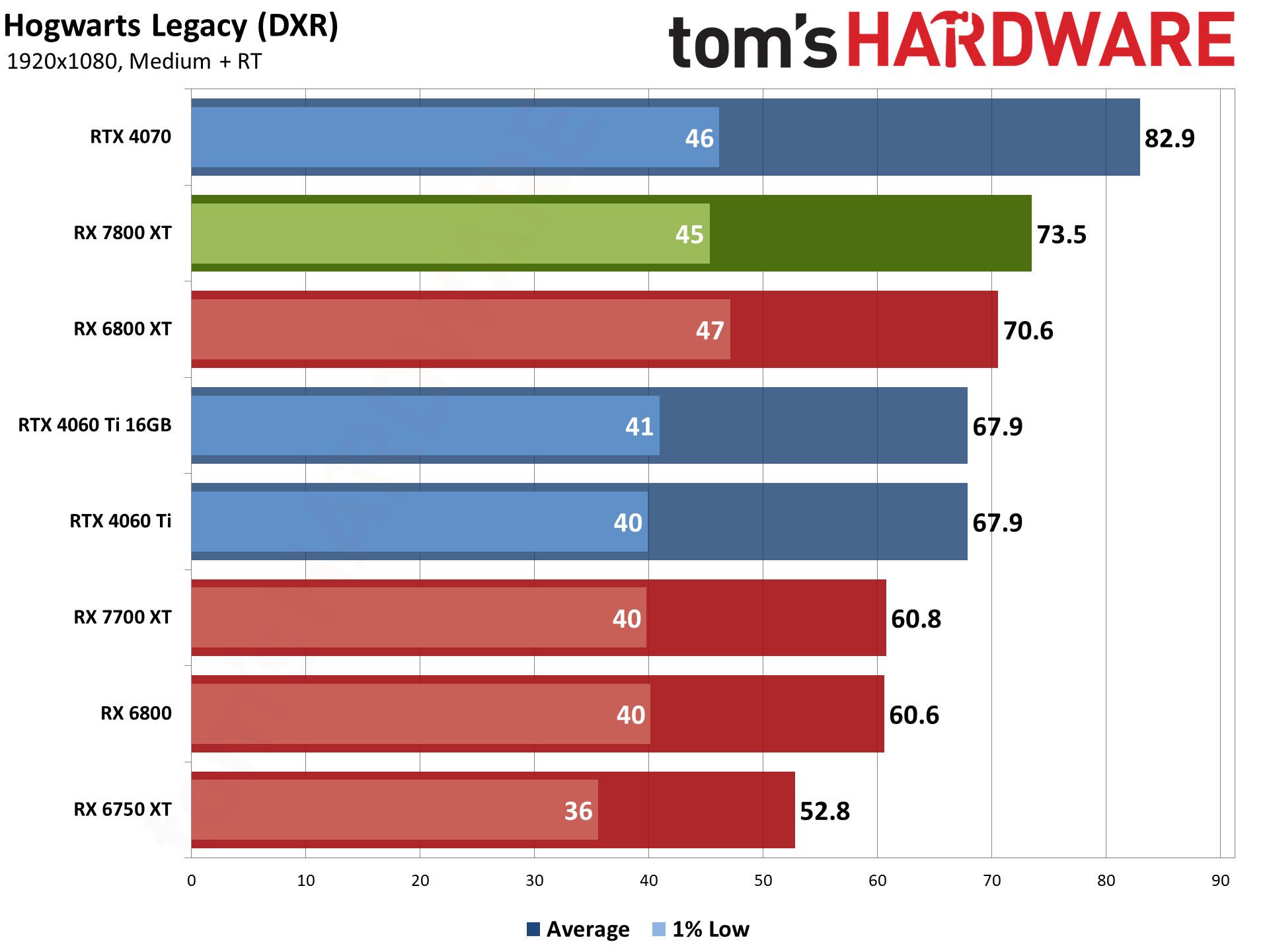
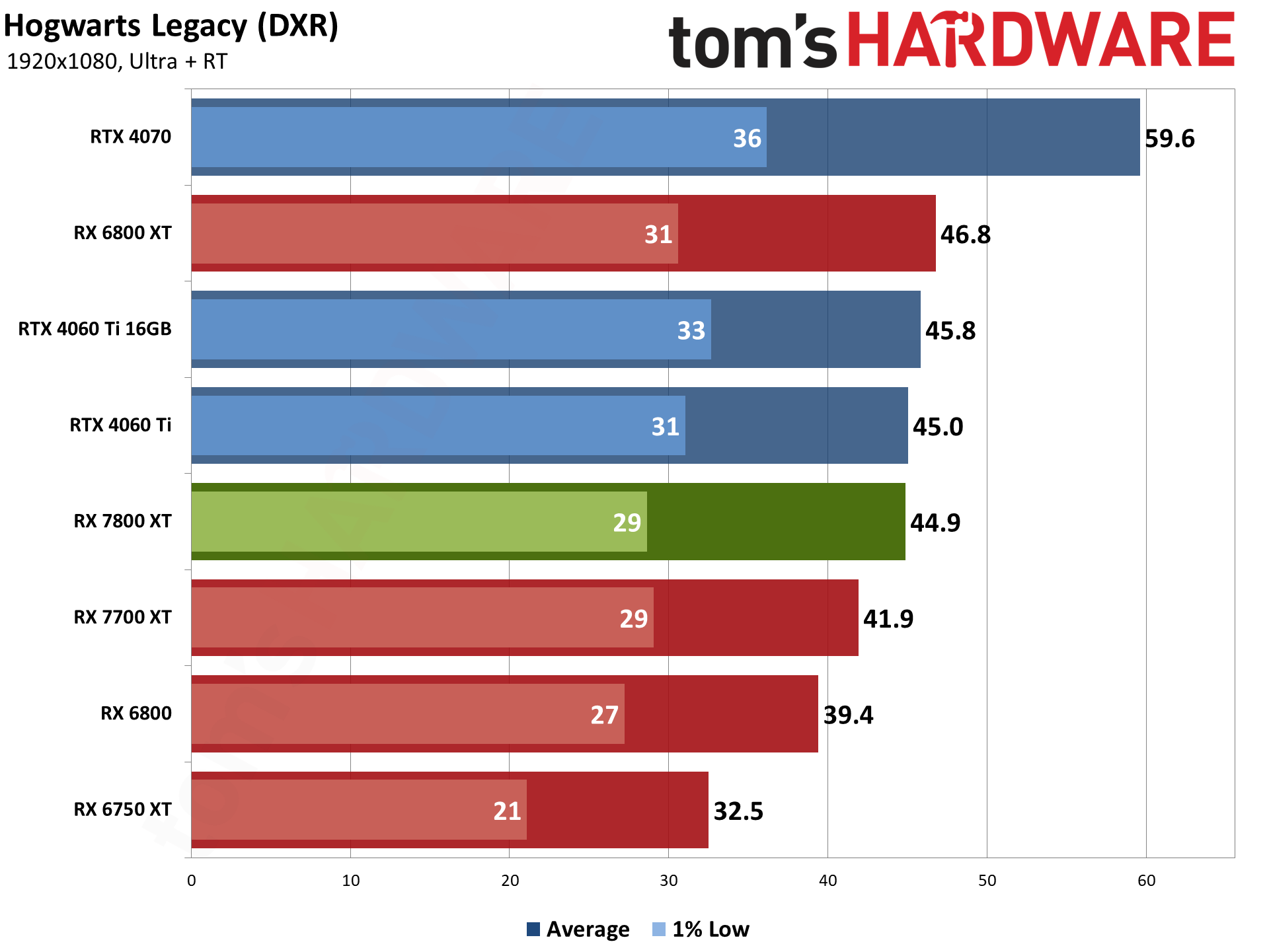
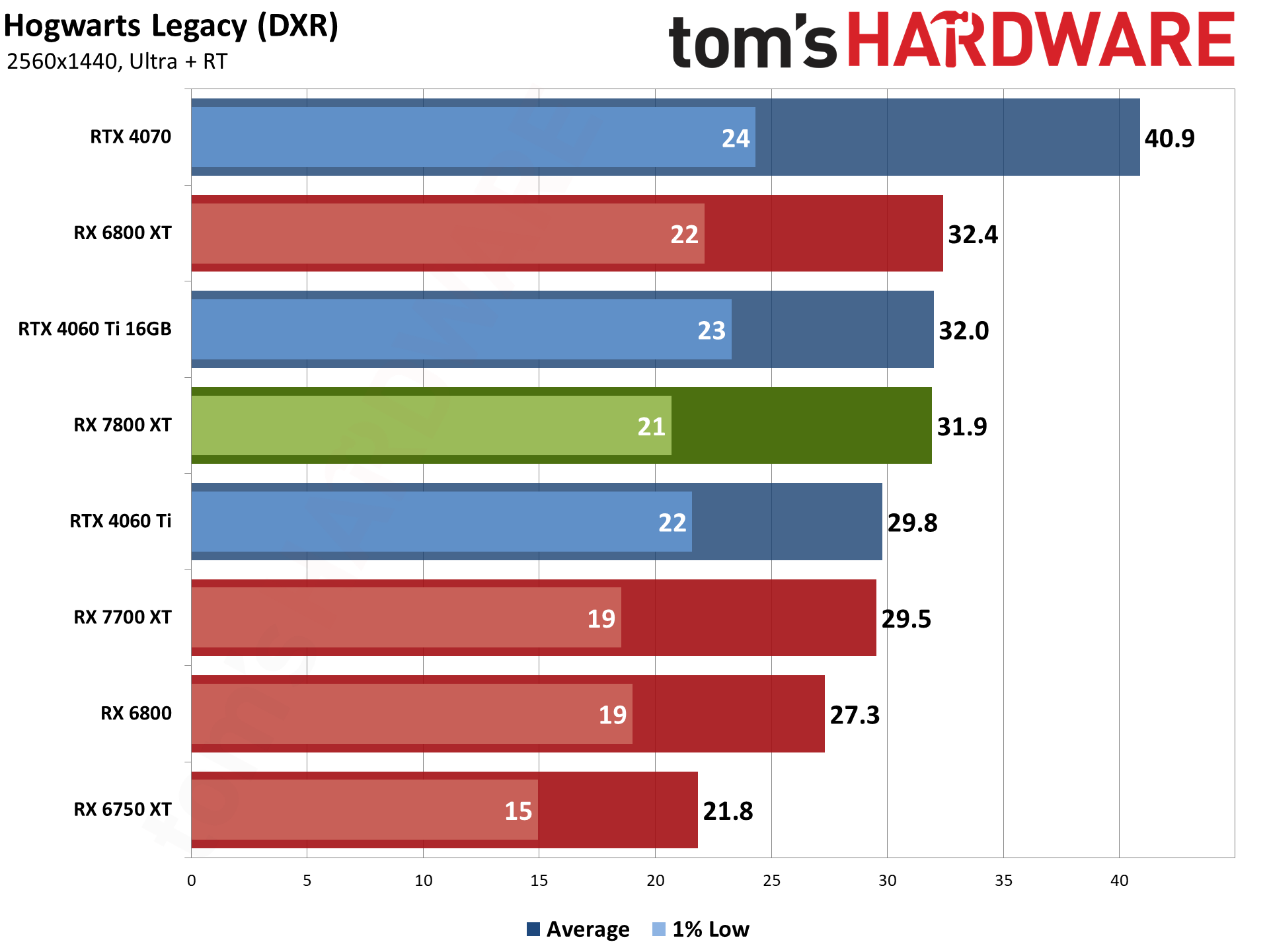
Hogwarts Legacy doesn't like running at maxed-out ultra settings on cards with only 8GB of VRAM, and it really doesn't like 1440p ultra on an 8GB card. The game will warn you about selecting settings that are too high, and then it will often crash to the desktop. We skipped the 4K testing due to the instability, not to mention performance would have been very poor on all of the GPUs. We did at least manage to complete a few benchmark runs where needed — just take the results on 8GB cards with a dash of salt.
We tested at 1080p medium with RT reflections, RT shadows, and RT ambient occlusion enabled, plus the overall RT quality set to medium. Thanks to the ray tracing, Nvidia's RTX 4060 Ti comes close to matching the RX 7800 XT and even ties it at 1080p ultra. The 4060 Ti 16GB isn't any faster at 1080p ultra, but it does make up the difference at 1440p ultra, with both it and the 7800 XT barely breaking the 30 fps mark. DLSS 3 and FSR 2 are supported, however, so you can improve performance via upscaling and frame generation if desired.
The RTX 4070, meanwhile, beats the 7800 XT across the three tested settings — as well it should, given it costs $100 more. It's 13% faster at 1080p medium, 33% faster at 1080p ultra, and 28% faster at 1440p ultra. The RX 6800 XT meanwhile offers similar performance to the 7800 XT but with generally better 1% lows.
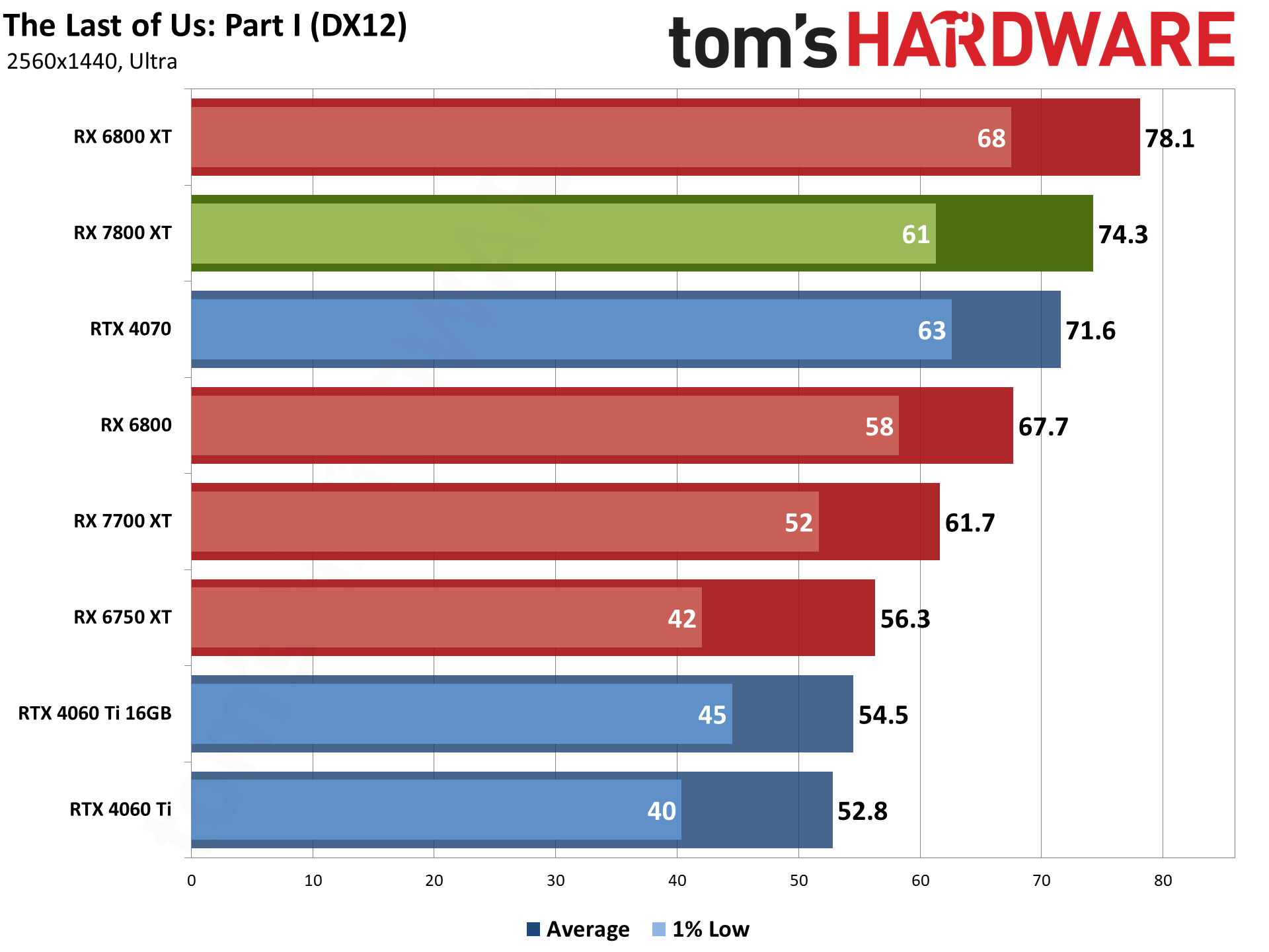
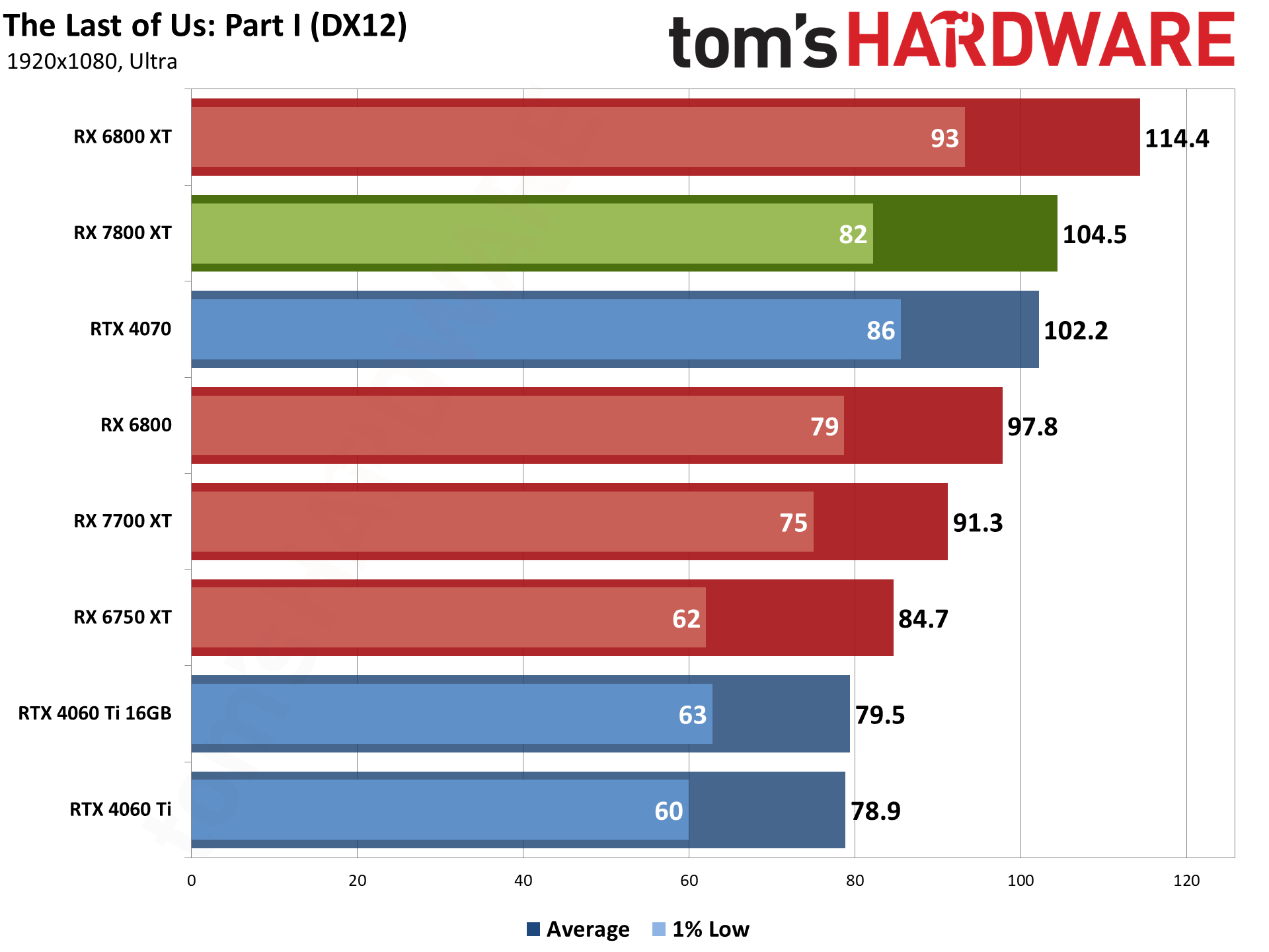
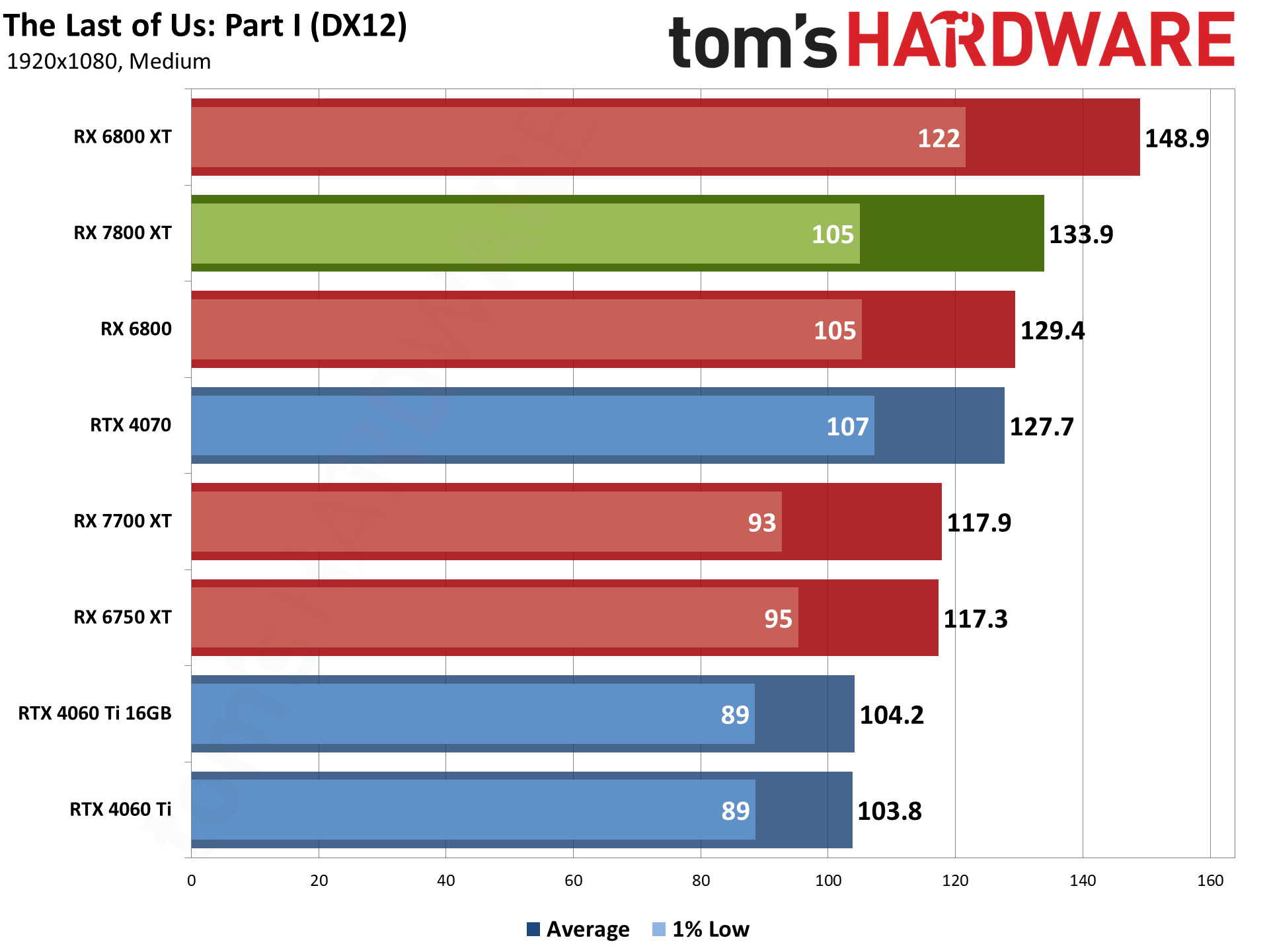
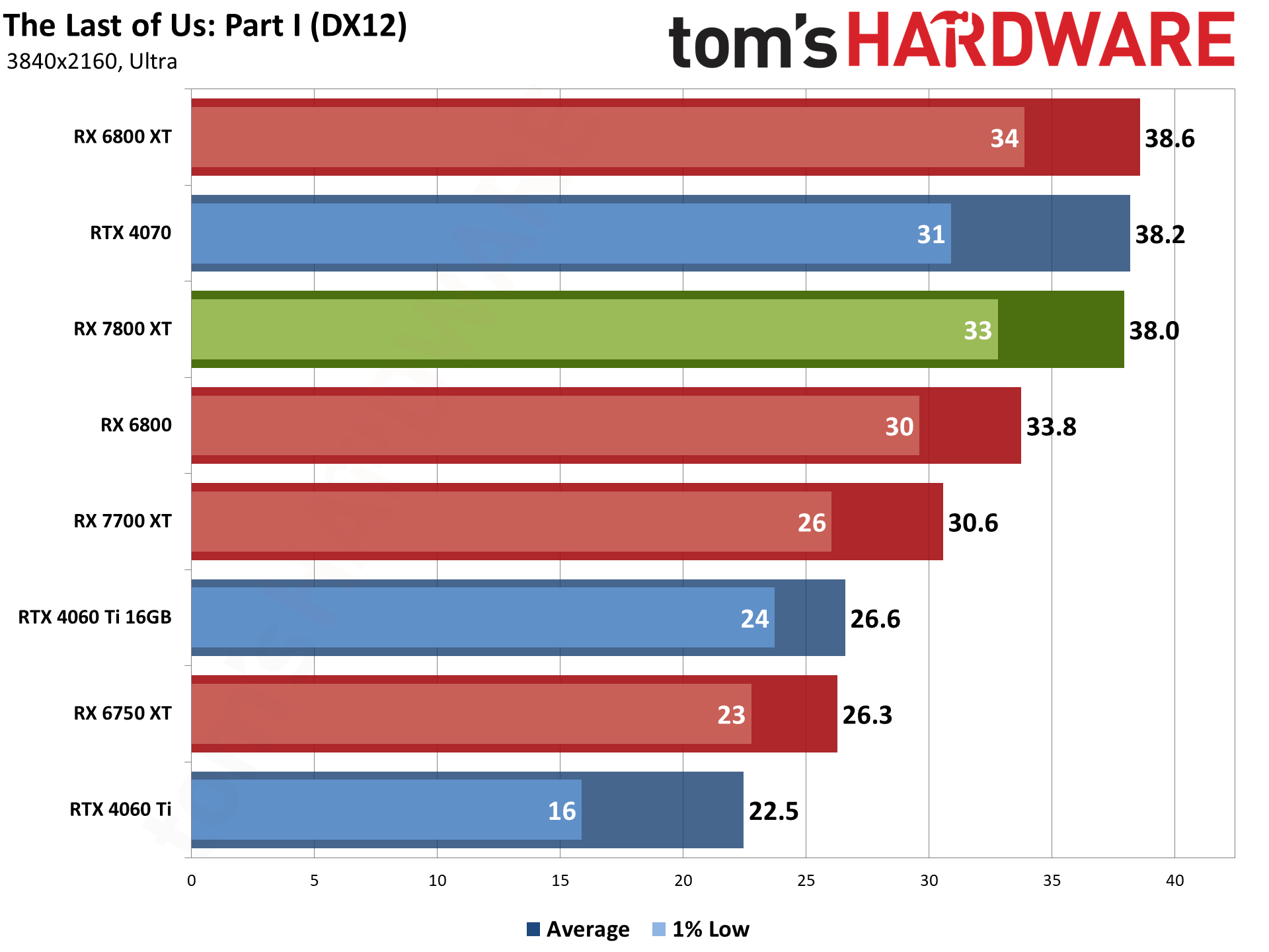
The Last of Us: Part I generally favors AMD's previous generation RX 6800 XT over the new 7800 XT, in both average and 1% low framerates. That's the bad news. The good news is that the 7800 XT easily outpaces the RTX 4060 Ti 16GB by 29–43 percent, and the 8GB card falls further behind and gives AMD a 29–69 percent lead — with the larger lead mostly at 4K, unsurprisingly. See our Why does 4K require so much VRAM explainer for more details.
However you want to slice it, this AMD-promoted game heavily favors AMD's GPUs over Nvidia's RTX cards. Perhaps that's to be expected, though it's unusual for the RX 7800 XT to surpass even the RTX 4070.
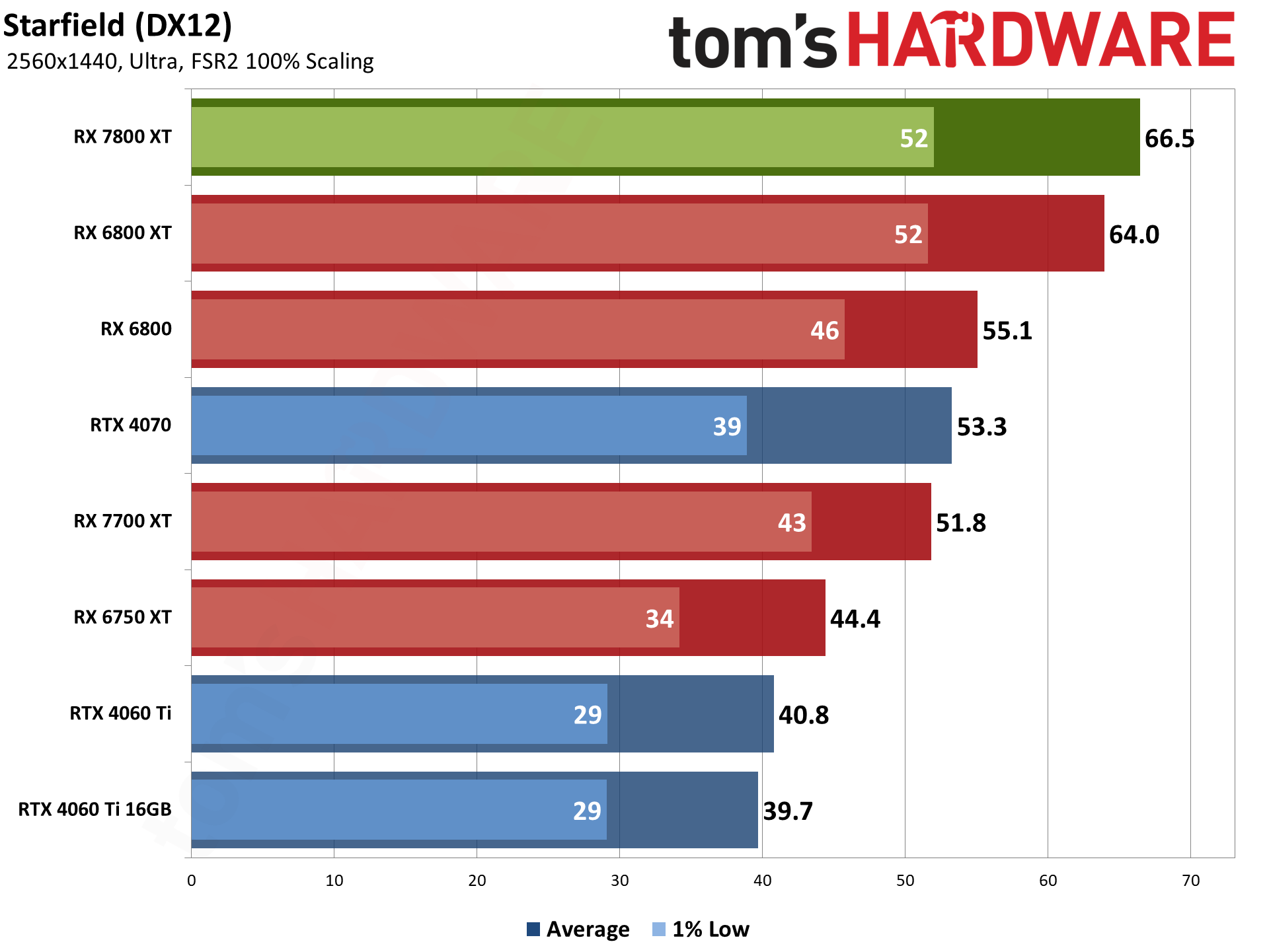
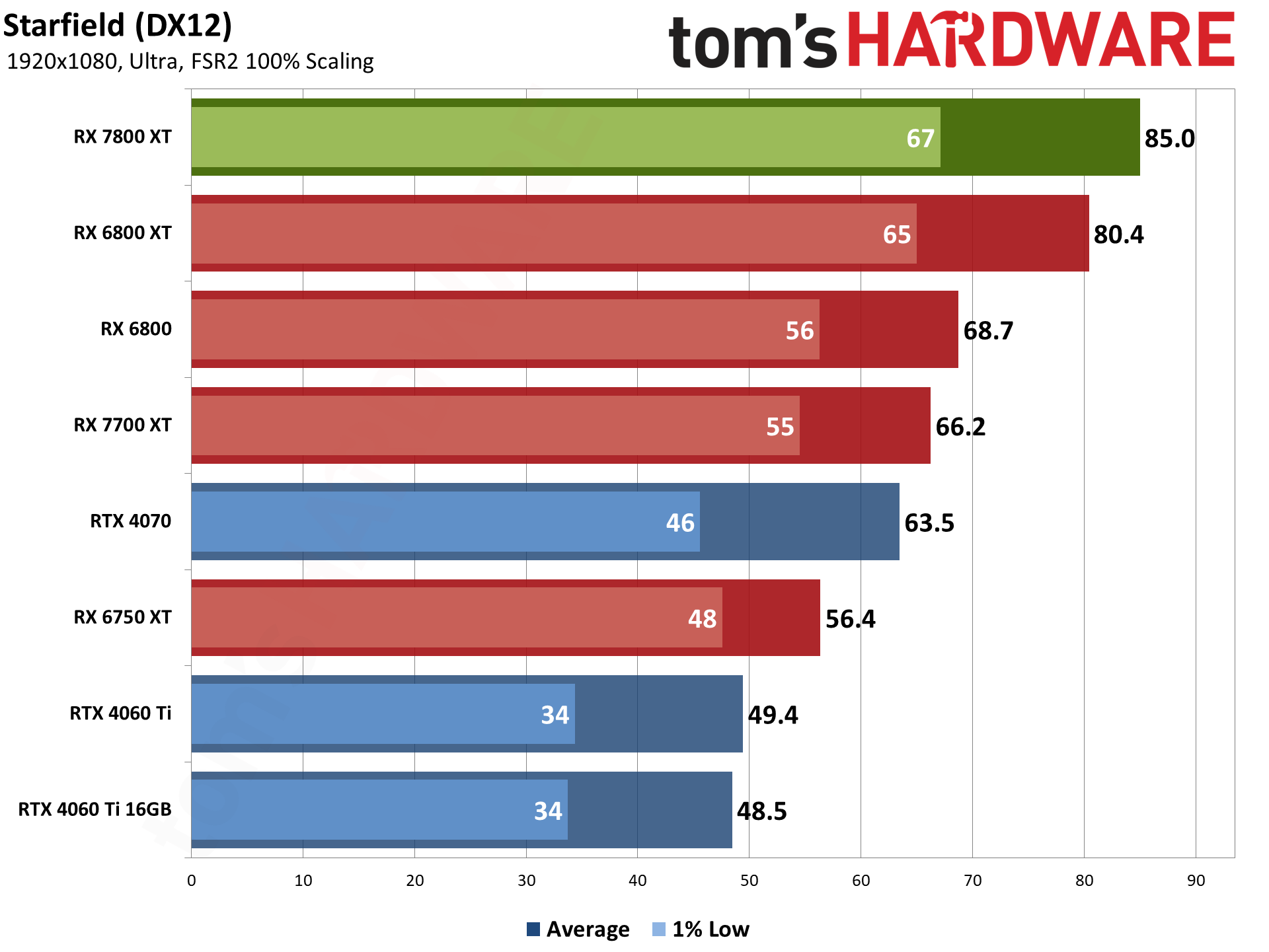
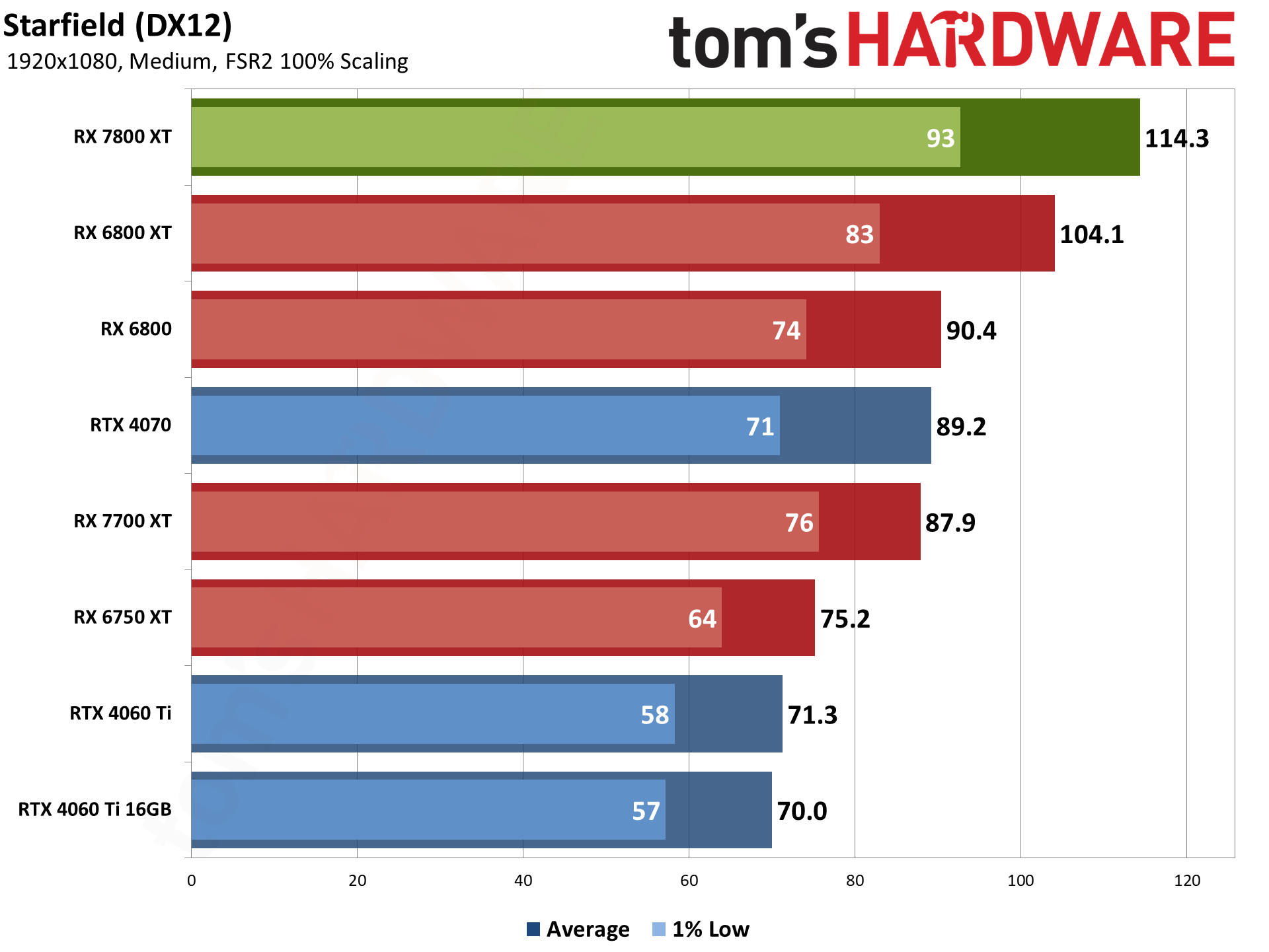
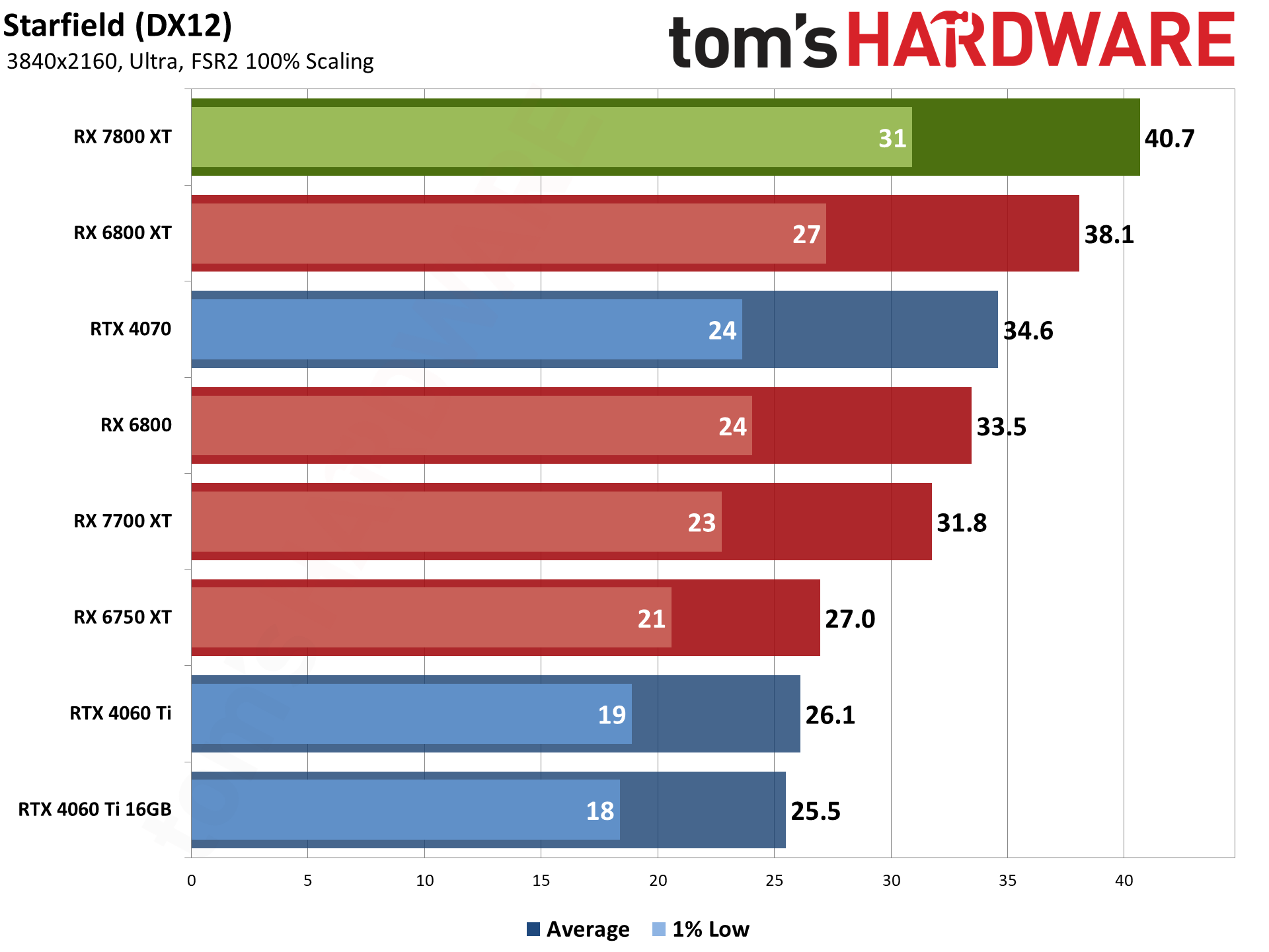
Finally, we have Starfield, a brand-new game that officially launches today (it's been in early access for purchasers of the premium edition for the past week). As we noted in our Starfield PC performance testing, there are clearly issues with non-AMD GPUs right now.
The result is that the RX 7800 XT offers 60–75 percent higher performance than the RTX 4060 Ti, but this is definitely not a case of VRAM helping standings as the RTX 4060 Ti 16GB ends up generally slower than the 8GB card. Even the generally faster RTX 4070 gets blown away (for now), with the RX 7800 XT delivering 18–34 percent more performance, depending on resolution and settings. (That's without FSR 2 upscaling enabled, though it doesn't really seem to matter whether it's on or off in terms of relative performance.)
One of the key issues with Starfield on Nvidia is that GPU power use is far lower than normal. For example, the RTX 4070 uses 150W at 1080p medium, 165W at 1080p ultra, 177W at 1440p ultra, and 191W at 4K ultra. It's only at 4K where the GPU came close to hitting its rated 200W TGP (total graphics power). The 4060 Ti is in a similar state, using 115–142 watts out of its rated 165W. Meanwhile, AMD's RX 7800 XT sits at 246–254 watts of the rated 263W. It's unclear why Nvidia's power use is low, but future patches and/or driver updates will hopefully improve the situation — which is about par for the course with Bethesda games.
- MORE: Best Graphics Cards
- MORE: GPU Benchmarks and Hierarchy
- MORE: All Graphics Content
Get Tom's Hardware's best news and in-depth reviews, straight to your inbox.
Current page: Radeon RX 7800 XT: Bonus Gaming Tests
Prev Page Radeon RX 7800 XT: 4K Ultra Gaming Performance Next Page Radeon RX 7800 XT: Professional Content Creation and AI Performance
Jarred Walton is a senior editor at Tom's Hardware focusing on everything GPU. He has been working as a tech journalist since 2004, writing for AnandTech, Maximum PC, and PC Gamer. From the first S3 Virge '3D decelerators' to today's GPUs, Jarred keeps up with all the latest graphics trends and is the one to ask about game performance.
-
oofdragon IMO its good at $500 since its on par with 6950XT when overclocked. Lets be honest It should have been at least a hair faster than the 6950XT at factory settings but since its $100 cheaper and virtually runs games just the same, its a solid offering. I feel though that at 1440p a card like the 6800XT is plenty enough, now at around $400 on eBay... and while the 7700XT could be a good deal at around that price, we also have the RX6800 with 16GB for $100 less......Reply
My two cents then, anyone into 60fps gaming should just stick with the 6700XT for 1080p and 6800XT for 1440p, why spend more to get the same? At 4K theres the 7900 series for $700/$800 playing any game just the same as the 4090 at half the price, AMD is a no brainer this gen. I went 7900 also for high refresh 1440p and that single game worth playing with RT enabled -
AgentBirdnest From the perspective of a 1440p RTX 2060 owner - who has had my heart set on, and has been saving up for an RTX 4070 for the last few months, I have to say:Reply
I wish I bought a Free-Sync instead of G-Sync monitor (there was no "G-Sync compatible" at the time.) Because the 7800XT is mighty compelling. 4070-like performance for $100 cheaper, and even the ray-tracing performance is close enough that I probably wouldn't notice in most games. A 50-watt difference is actually enough to make me uncomfortable after an hour of gaming in this room. But for $100 less than the 4070, I might be able to live with that.
But I can't live without my variable refresh rate, and am not willing to splurge on a new monitor that I don't need. So, a higher-priced card for me, unless Nvidia drops the price a few bucks or makes a compelling Super-refresh before the end of the year, but I won't hold my breath.
The 7700xt is just... puzzling. All I have to say is, "Why?"
As always, props for the great review, Jarred! I haven't read through every page just yet, I'll do that a bit later. But the benchmarks and analysis I saw so far look great. Thanks for the hard work. -
Elusive Ruse It's a better 6800XT at a lower price, nothing exciting as far as generational leap goes but it beats every card at its price point.Reply -
Frozoken Just so u know u absolutely need to undervolt amd cards when overclocking them to get extra performance. Techpowerup was seeing roughly 15% gains in fps from their ocReply -
Avro Arrow Reply
Sure, but it's SUPPOSED to do that. The cost per frame is SUPPOSED to go down every generation. Remember how the $500 RTX 3070 was slightly faster than the $1200 RTX 2080 Ti? That's what's supposed to happen.Elusive Ruse said:It's a better 6800XT at a lower price, nothing exciting as far as generational leap goes but it beats every card at its price point.
The RX 7800 XT is supposed to be Navi 31, just like the RX 6800 XT is Navi 21. AMD is royally screwing people here with a deceptive naming scheme. -
Colif it competes well against 4070 if you don't use RT, and its cheaper.Reply
It walks all over both 4060 models.
neither AMD or Nvidia have a perfect record this generation when it comes to naming really. -
Elusive Ruse Reply
I don't buy GPUs based on their names. For me it's quite simple; I buy the best bang for my buck regardless of the badge and name.Avro Arrow said:Sure, but it's SUPPOSED to do that. The cost per frame is SUPPOSED to go down every generation. Remember how the $500 RTX 3070 was slightly faster than the $1200 RTX 2080 Ti? That's what's supposed to happen.
The RX 7800 XT is supposed to be Navi 31, just like the RX 6800 XT is Navi 21. AMD is royally screwing people here with a deceptive naming scheme. -
Upacs Reply
Exactly. What matters is price/performance ratio (and features and stability). Naming is irrelevant and only for the clueless consumer that assumes higher is always better. But none of those here, right?Elusive Ruse said:I don't buy GPUs based on their names. For me it's quite simple; I buy the best bang for my buck regardless of the badge and name. -
PEnns I am really tempted to buy the 6800 XT and call it a day (and wait for another 2-3 years maybe).Reply
The 7800 XT seemed like a decent new card - but the deal breaker was the loudness but nothing else really.
